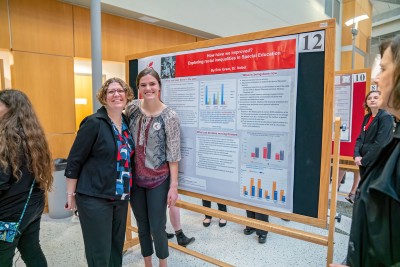Contact Info
Location
65 S. Sandusky St.
Delaware, OH 43015
E djalbon@owu.edu
OWU Connection Programs
Merrick Hall

 Student: Erin Greer
Student: Erin Greer
Mentor: Michele Nobel (OWU Department of Education)
This Independent Study explored the racial inequalities noted within the field of special education, particularly related to identification for certain disability categories and eligibility for special education services. An example of this would be more African American males being identified as having an Emotional Behavior Disorder, Learning Disability, or Attention Deficit Hyperactivity Disorder. More severe disciplinary practices can also be noted among male, African American students with and without disabilities. Racial inequalities have been well documented in special education, even prior to the first special education law in 1975. Since then, awareness of racial inequalities when identifying students with disabilities has improved and identification practices are more appropriate, such as using non-biased and multi-factored evaluation tools with a Response-to-Intervention team-based approach. But, after reviewing data and exploring the literature, there is more work to be done. Ensuring students are correctly identified with disabilities and are placed in the least restrictive environments with the right supports is important. Discipline practices could be improved. Teachers could use more training and supports. Teachers are expected to work collaboratively with all families including diverse families and those from low socio economic status. It is so important for pre-service and in-service teachers to know and understand the inequalities that take place in the education system and determine what we can do as teachers to help fix and better these issues within and outside of our classrooms. Teachers are responsible for collecting data and assisting in the referral and identification of disabilities. It is vital that teachers are aware that racial inequalities are still present in identification and service for students with disabilities, particularly for African American males. After reviewing the data and the literature for this Independent Study, there are a few recommendations that can be made. Teachers need to be aware and understand this issue. When working to identify students for disabilities, teachers need to make sure they are being objective and are aware of their implicit biases. Teachers need more training on Positive Behavioral Interventions and Supports to create classrooms where students can thrive and positive discipline strategies can be used. With these suggestions, teachers can improve the outcomes for students with disabilities no matter what their race or ethnicity.
More information about this project in Digital Commons @ OWU